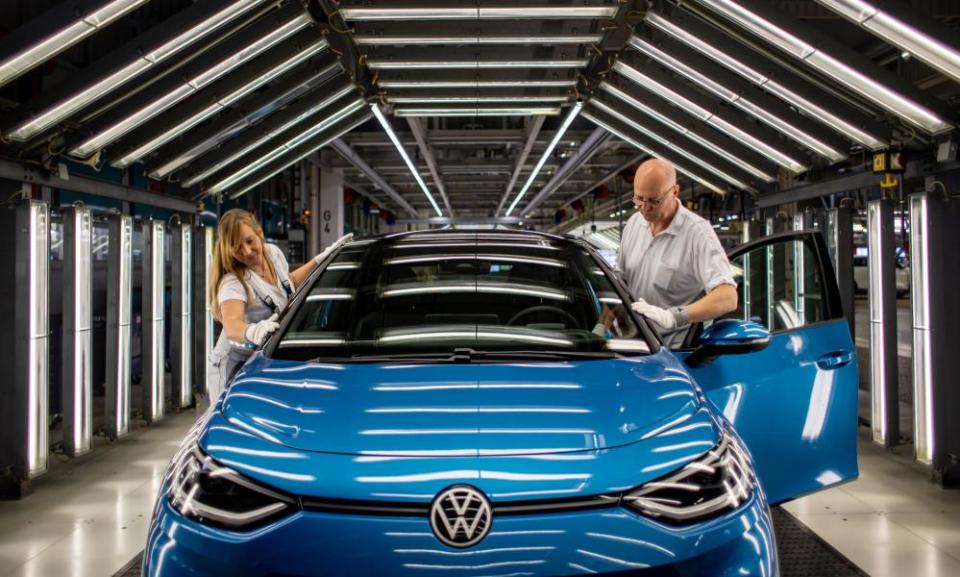EU carmakers urge Von der Leyen to delay post-Brexit tariffs on electric vehicles

The bosses of Europe’s largest carmakers have urged the president of the European Commission to postpone the “cliff-edge” introduction of post-Brexit tariffs they say will harm EU electric vehicle production.
Renault, Mercedes-Benz, Volvo and Ferrari were among the 13 large manufacturers who wrote on Tuesday to Ursula von der Leyen asking for a delay to “rules of origin” that are scheduled to come into force on 1 January.
The car industries on both sides of the Channel have united in calling for the deadline to be delayed by three years until the end of 2026, to avoid 10% tariffs being imposed overnight.
The carmakers also included Toyota, Ford and Jaguar Land Rover, all of which have factories in Britain, plus BMW and Volkswagen, which own Rolls-Royce and Bentley in the UK.
They have gained the strong backing of the UK government, which wants to avoid any negative impacts from Brexit. However, senior EU officials have said they do not believe the negotiated deal should be reopened to appease the car industry.
The UK and EU agreed a hurried Brexit deal on Christmas Eve 2020, to the relief of carmakers and many other industries. However, the deal also included rules to force carmakers to source batteries from the EU. Exported cars between the UK and EU will be subject to 10% tariffs if they do not source batteries from within Europe.
About 90% of electric cars exported from the EU to the UK, and vice versa, would be affected but petrol and diesel cars would not – to the chagrin of environmental campaigners.
The rules are a problem because China, South Korea and Japan dominate the global battery manufacturing market. The carmakers believe that tariffs on European vehicles will help Chinese manufacturers, which are hoping to win a larger share of Europe’s market – a shift that could threaten jobs in Europe.
The tariffs “would have a direct impact on the competitiveness of EU electric vehicle manufacturing by reducing our share in Europe’s number one EV export market”, the carmakers wrote, referring to the UK.
The car bosses said the rules of origin were “unachievable” and would “have significant direct consequences in terms of a potential loss of EV manufacturing output in Europe”.
Imposing the tariffs would be “incoherent” because it would risk damaging new green industry at a time when the EU was trying to encourage it, said the letter, which was coordinated by the European Automobile Manufacturers’ Association, a lobby group.
A series of huge gigafactories are under construction across Europe, to try to redress the imbalance in battery supply, but they are coming too late for the 1 January deadline.
Europe’s share of the global industry is expected to double by 2035, according to the data company Benchmark Mineral Intelligence. Gigafactories include the JLR owner Tata’s planned plant in the UK, two factories in France’s northern “Battery Valley”, and nine new or expanded plants in Germany, Europe’s traditional automotive heartland.

 Yahoo Finance
Yahoo Finance 